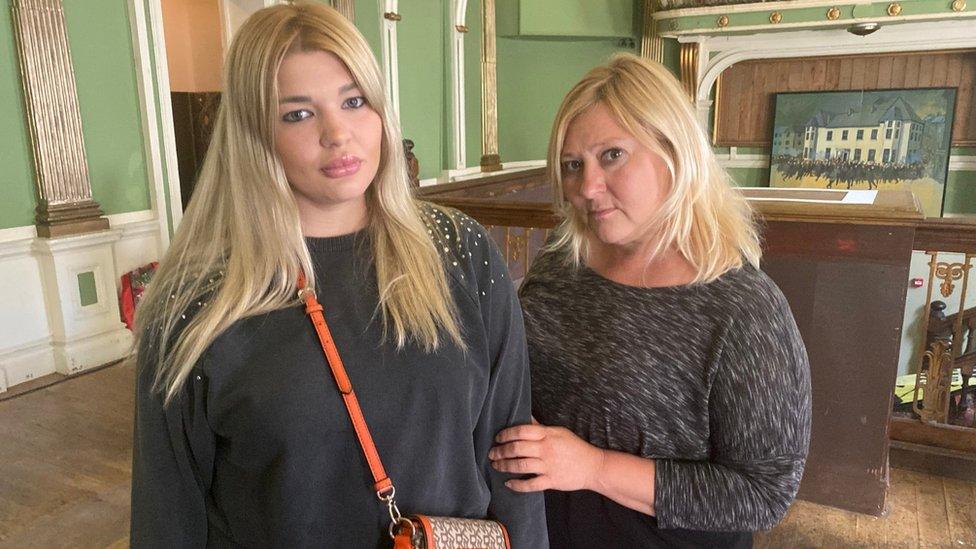Ukrainian refugees ‘broken’ after leaving UK host
- Published
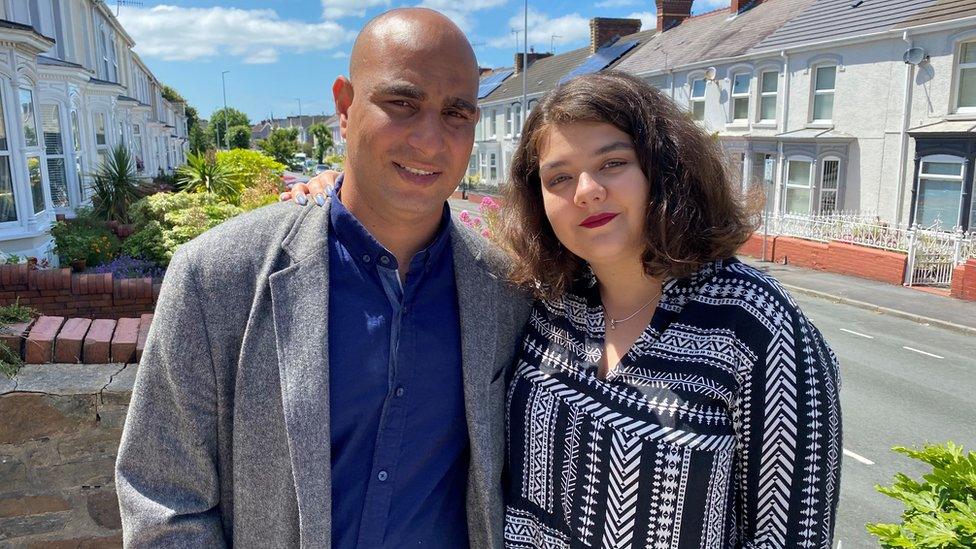
Mila and her husband Yaya have said "aggressive and intimidating" behaviour forced them to flee their UK host
Mila and Yaya fled Ukraine for a better life in the UK, but became homeless after alleged aggressive and intimidating behaviour by their host.
The couple escaped fierce fighting near the city of Bucha, and agreed to move in with a sponsor in Wales.
But they allege he has left them penniless and without essential documents needed to extend Yaya's visa.
The couple's host, Mark Newbery, said the accusations were "half-truths" and blamed a "clash of personalities".
After war broke out in Ukraine, Mila and Yaya fled the country and after several weeks found themselves in the UK, living under the UK government's Homes for Ukraine scheme.
After unsuccessfully searching for a host family through Facebook, they decided to approach a man they had met on holiday in Egypt.
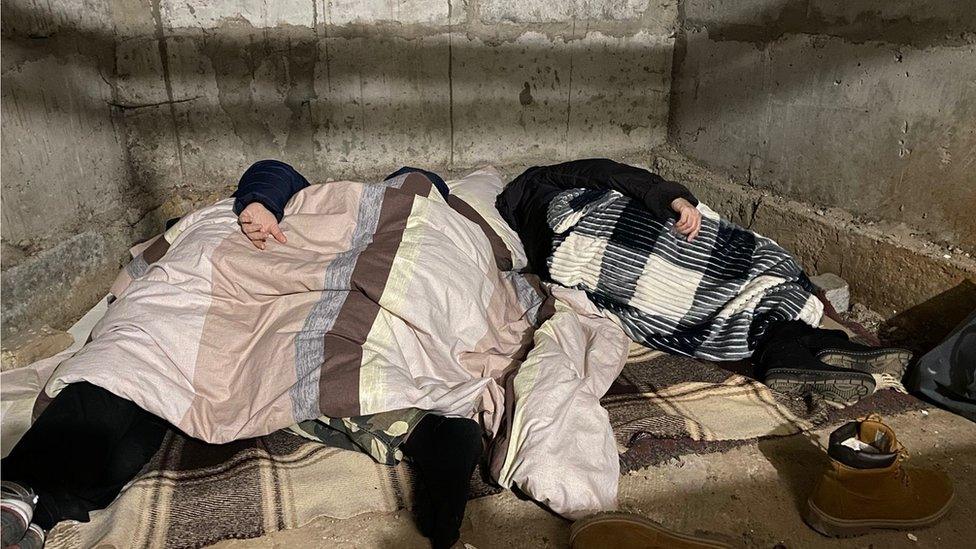
Mila and Yaya slept in the basement of an apartment building, near Bucha, for five days before fleeing Ukraine
Mr Newbery has a home in Llanelli, Carmarthenshire, but had recently been living in Egypt, where he had met Mila and Egyptian national Yaya.
"He was a person who we knew, what can go wrong?" said 23-year-old student Mila.
"We had zero extra thoughts about him, he was so sweet," she added.
Mr Newbery told them he had attempted to fly back to the UK in order to host them, but bank card problems were stopping him.
Mila and Yaya said they then offered to lend him money for his flight.
In response, Mr Newbery has said the couple "insisted" on paying for his ticket, and he did them a "big favour" by returning to Wales early.
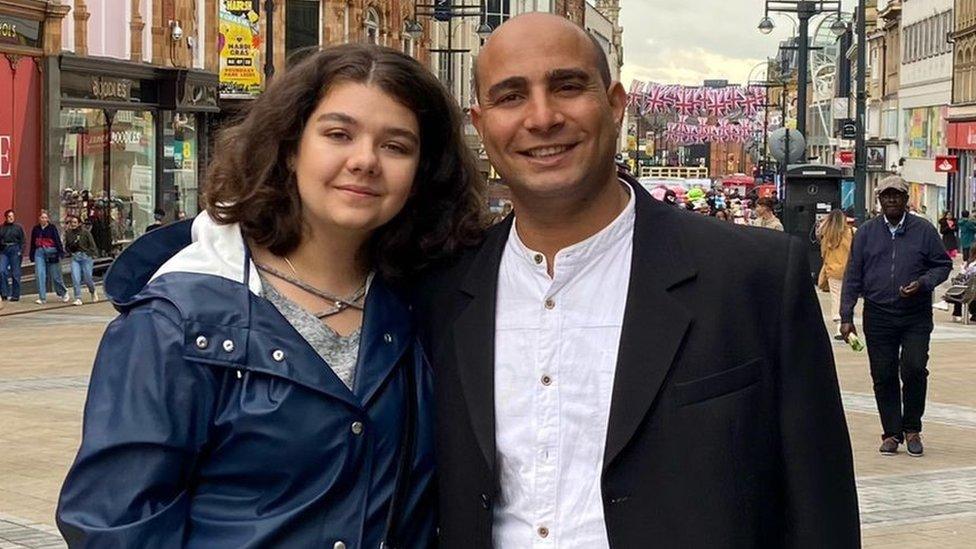
Mila has said the situation had "broken our hearts"
Over the next few days the pair said Mr Newbery sent them "heart-warming" videos and messages describing how he was getting his home ready for them, and looking forward to them arriving.
They said he told them that his home had been inspected by the local council.
However, just hours after they reached Mr Newbery's house, things started to go wrong.
"When we entered the house we realised it was not finished," said Mila.
"It's ok," she added, "We are not picky people, we'd spent five nights in a basement".
However, the next day the couple became increasingly concerned about Mr Newbery's behaviour.
Fellow Ukrainian refugee Marta Burak has had a much more positive experience in Wales
"I asked him if he'd be funded by the government to cover extra expenses [of us living there]," she said.
"He was like 'no, I have £350 and this money is for my garden and finishing my house'.
"At this moment I realised we have zero money. I didn't know what to do."
'He got very, very aggressive'
Mila said Mr Newbery told them that they would need to contribute to household bills.
"He got aggressive, very, very aggressive. He was calling me a stupid woman.
"He said shut up, if you don't like it then you can go away," said Mila.
"I was very desperate, I was trying not to cry and Yaya was holding my hand."
Under the Homes for Ukraine scheme, hosts are not allowed to ask their guests for rent but UK government guidance, external states they can ask for "a reasonable contribution to any common household bills such as food and utilities".
'Like a spoilt child'
However, Mr Newbery has said Mila suggested he needed to "pay for everything", but he didn't agree, so he "told her straight".
"I told them that if I got the money [from the government] we could talk about it then, but until then they'd have to pay their way. They're disgruntled, she's like a spoilt child," he said.
"I said listen, if you're not going to pay your way, get another sponsor."
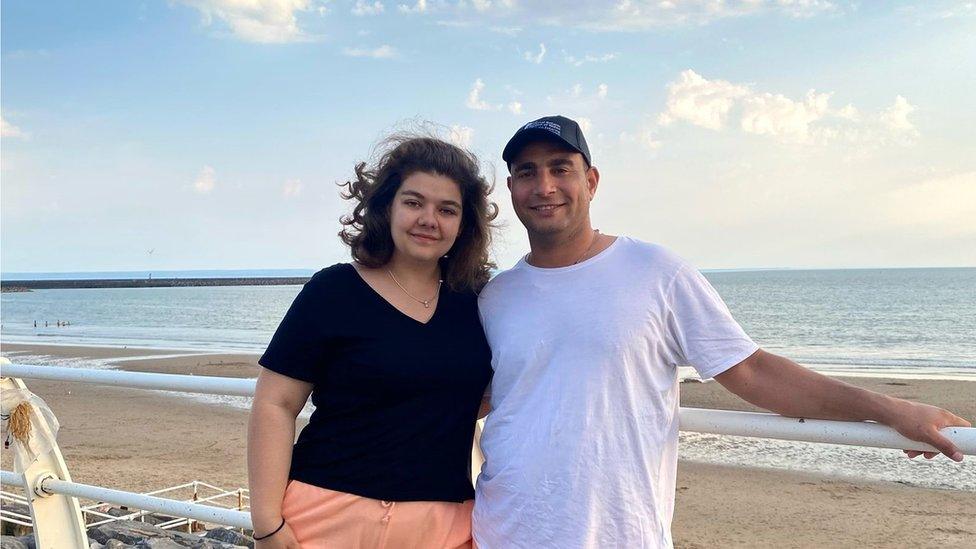
Mila turned to social media to share information about her experience
That evening Mila wrote about what was happening on Facebook.
Another host nearby reached out to help, but ultimately the pair decided to stay another day.
"I didn't want to give him a problem or make him sad," explained 33-year-old chef, Yaya.
However, the following day Mila said a second row erupted after she changed Mr Newbury's Wifi password.
"He was furious, he was shouting at me. At one point I thought he would even hit me. I felt very unsafe there," she said.
"I felt humiliated, I was mentally destroyed after the things we went through and he was destroying me more and more."
'Glad they left'
In response, Mr Newbery said he hadn't lost his temper but "can't vouch for the way they felt".
"If she felt physically threatened that's the last thing I would have wanted to do," he said.
He added that he told the pair to leave, and was "glad" when they did.
Mila said she contacted Carmarthenshire council, which organised for them to stay elsewhere - and even sent messages in Ukrainian so Mr Newbery could not see what was being said.
Councillor Linda Evans of Carmarthenshire council said: "Officers will carry out property inspections and DBS checks on host households; and in the event of any breakdown in the relationship, we will provide support.
"We will ensure those seeking sanctuary have the protection and safety they need to rebuild their lives here in Carmarthenshire."
Later, Mila said she was told that Mr Newbery's house had never actually been inspected by council officers.
The couple's future is now as uncertain as ever.
For the past few weeks they have been housed in emergency accommodation with other Ukrainian families they said have been kicked out by their hosts.
"We are left with nothing," said Mila.
The pair said they believed documents necessary for Yaya to extend his visa had been sent to the house since they left, something Mr Newbery strongly denies.
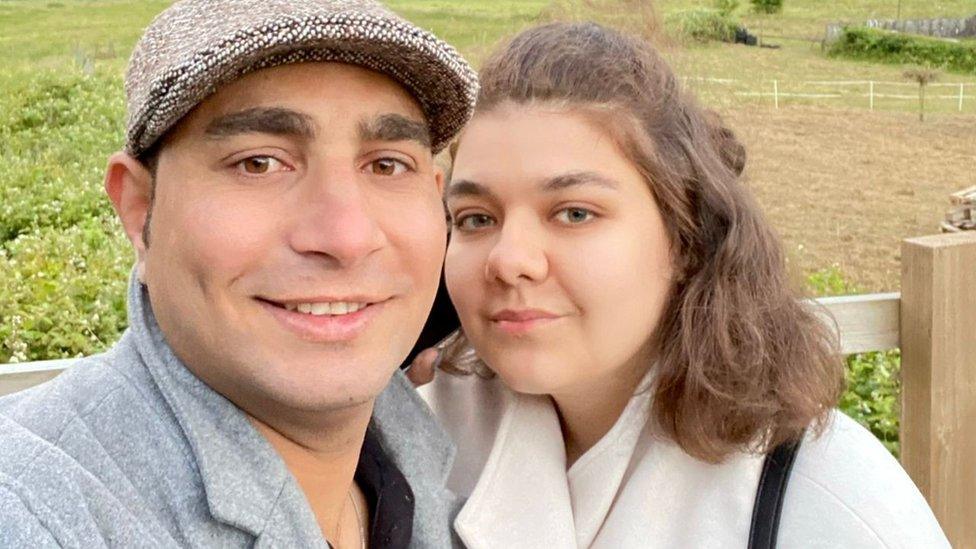
The couple said they would be far more careful in choosing a host in future
It's understood local authorities and police have been involved, although there are no allegations of criminal activity.
Looking back at their experiences, the pair think they would be far more careful choosing a host in future.
They also want to remind hosts of the responsibilities they take on when choosing to welcome a Ukrainian family.
"I'm begging you that if you're not ready to live with a stranger, just don't take the responsibility," pleaded Mila.
"It breaks our hearts."
The UK government, which is responsible for the Homes for Ukraine scheme, external said more than 65,000 people have arrived through the scheme and that the vast majority of these are settling in well.
In a statement it added: "We have strict safeguarding measures in place to protect those arriving through the Homes for Ukraine scheme, including DBS checks on hosts before visas can be issued.
"In the minority of cases where there are safeguarding concerns, councils can provide alternative accommodation."
Related topics
- Published22 June 2022
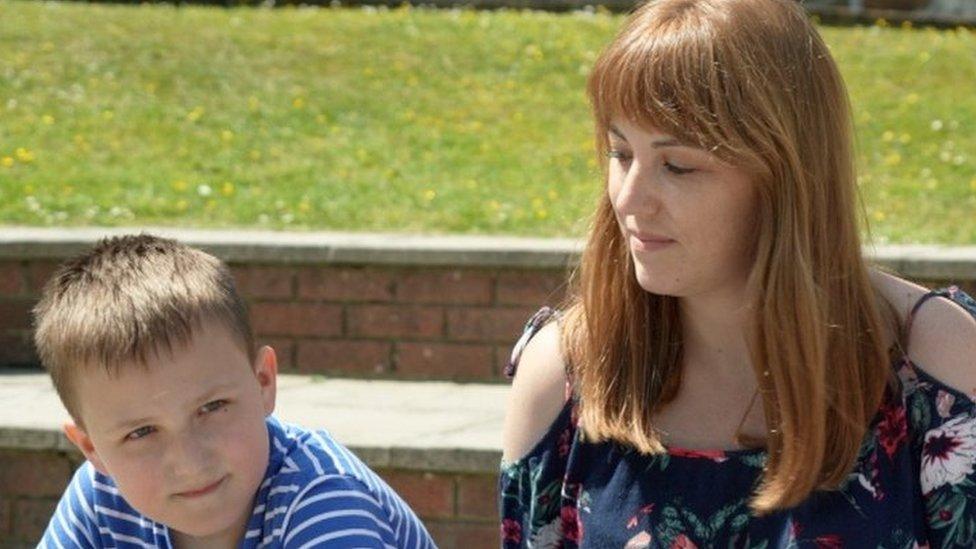
- Published22 June 2022
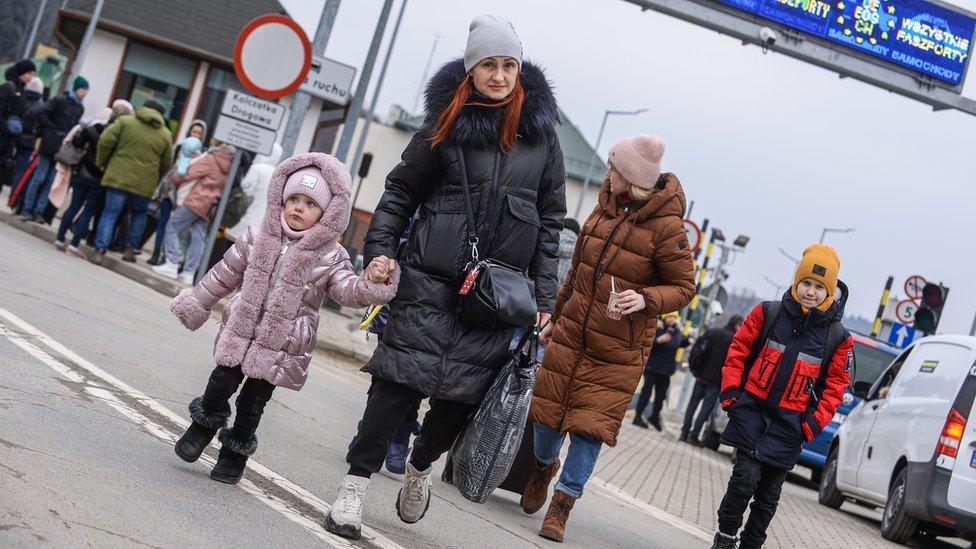
- Published21 June 2022
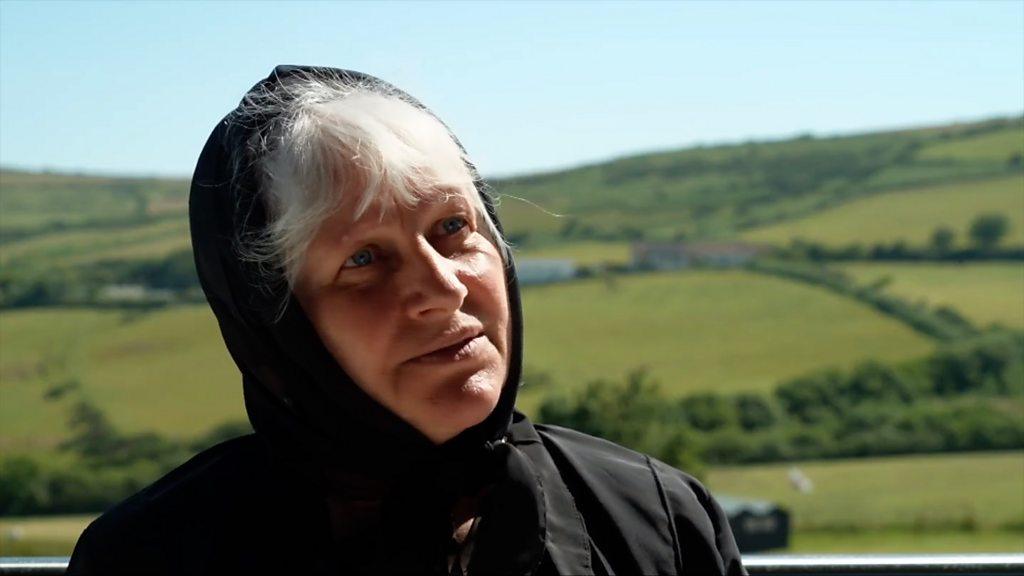
- Published30 June 2022
